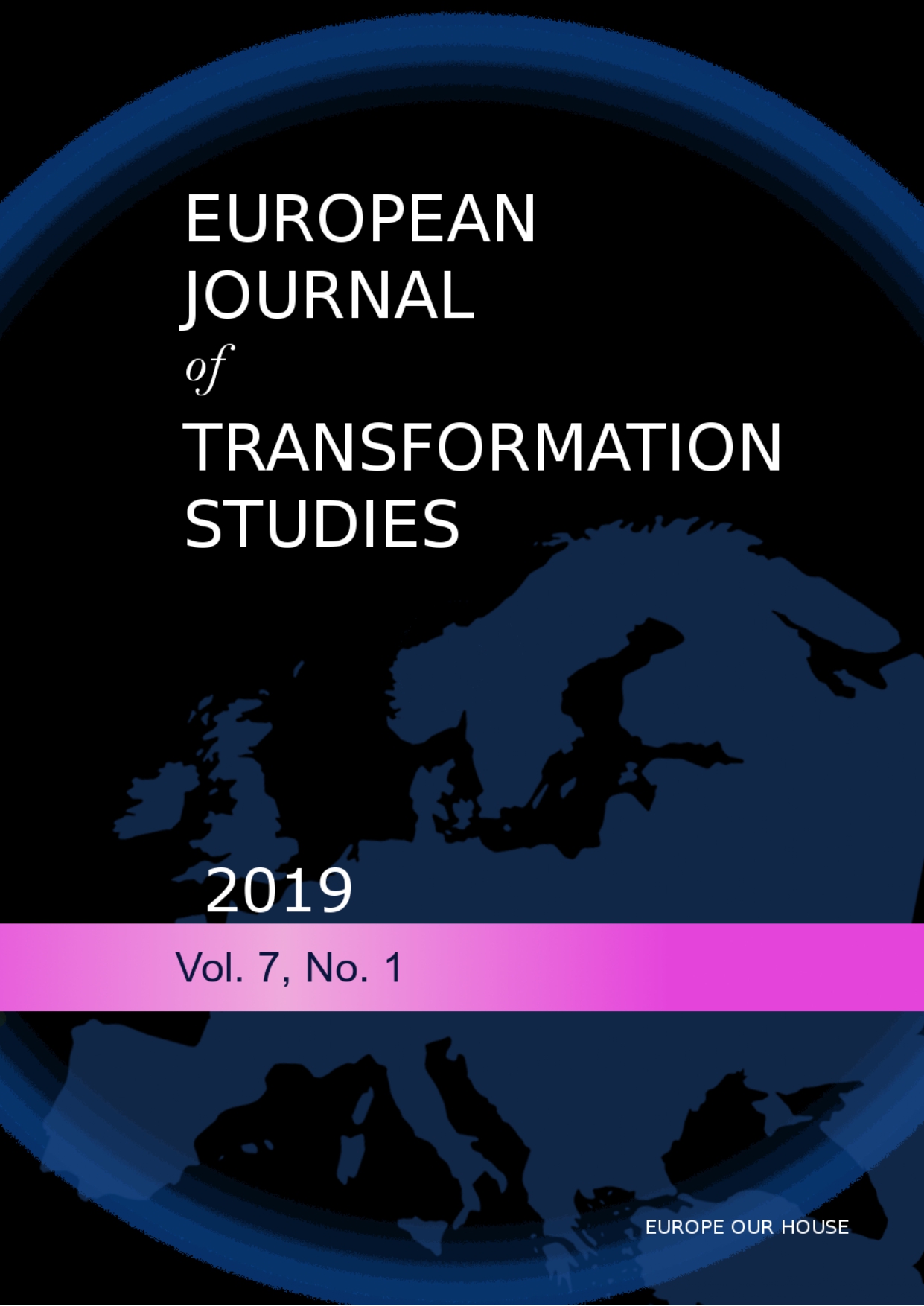Straregies for promoting Polish identity in the northeastern United States
Słowa kluczowe:
Promoting Polish Culture, Polish Cultural Organizations, Survey ResearchAbstrakt
The survey research study described in this article was launched in Fall 2018 to assess the determinants of Polish identity among first and second-generation American born individuals of Polish descendant -- the generation first born in the United States whose parent(s) was/were born in Poland -or- the second generation born in the United States whose grandparent(s) was/were born in Poland and whose parent(s) was/were born in the United States. The study took place in the northeastern United States. The article begins with a brief literature review on the subject followed by a description of the research methods used, findings that pertain to a target audience, and a strategy for promoting Polish identity with this target audience. This strategy should prove useful to Polish cultural organizations in the northeastern United States (and perhaps elsewhere) in their efforts to develop programming that successfully promotes Polish identity with their audiences.
Downloads
Bibliografia
Berry J. (2001). A Psychology of Immigration, in Journal of Social Issues, 57(3), 615-631.
Bukowczyk, J. (1987). And my children did not know me: A history of the Polish-Americans (Minorities in modern America). Bloomington: Indiana University Press.
Ellis, L. M., & Chen, E. C. (2013). Negotiating Identity Development among Undocumented Immigrant College Students: A Grounded Theory Study, in Journal of Counseling Psychology, 60(2), 251-264.
Esses, V. M., Medianu, S., Hamilton, L., & Lapshina, N. (2015). Psychological perspectives on immigration and acculturation, in M. Mikulincer & P. R. Shaver (Eds.), APA handbook of personality and social psychology, 2, group processes (pp. 423–445). Washington, DC: American Psychological Association.
Gans, H.J. (1979) Symbolic ethnicity: The future of ethnic groups and cultures, in America, Ethnic and Racial Studies, 2:1, 1-20, DOI: 10.1080/01419870.1979.9993248.
Glinka, B., & Brzozowska, A. (2015). Immigrant Entrepreneurs: in Search of Identity, in Entrepreneurial Business and Economics Review, 3(4), 51-76.
Głębocki, Z. (2012) Digital homeland: Polonia on the world wide web, in Pogranicze Studia Spoleczne, 20, 261-266.
Gone, J., Miller, P., & Rappaport, J. (1999). Conceptual Self as Normatively Oriented: The Suitability of Past Personal Narrative for the Study of Cultural Identity, in Culture & Psychology, 5(4), 371-398.
Jackson, D. (2004). Pushing Politics: Polka Music and Polonia, in Polish American Studies, 61(2), 61-86.
Jaroszyńska-Kirchmann, A. D. (2011). Ethic Identity and Assimilation, in J. Pula & M. Biskupski (Eds), The Polish American encyclopedia (pp. 101-111). Jefferson, N.C.: McFarland.
Jaroszyńska-Kirchmann, Anna D. (2015). The Polish Hearst : Ameryka-echo and the public role of the immigrant press (History of communication). Urbana, Illinois: University of Illinois Press.
Juergensmeyer, K. (2018). Performing "Polishness": The Polish-Brazilian Community of Paraná, ProQuest Dissertations and Theses.
Kasprzak, M. (2011). Buying a new identity: Polish-Americans and mass consumerism in the interwar years, in The Polish Review, 56(4), 355-384.
Lewandowska, E. (2008). More Polish or more British? Identity of the second generation of Poles born in Great Britain. Retrieved December 28, 2018 from: http://iaccp.org/ebook/xian/PDFs/4_5Lewandowska.pdf
Matten, L. (2014). Scouting for Identity: Recruiting Daughters to Save the Traditional Polish Family During the Interwar Years. Polish American Studies,71(1), 5-36.
Miodunka, W. (2003). Bilingwizm polsko-portugalski w Brazylii [Polish- Portuguese Bilingualism in Brazil]. Kraków: Universitas.
Newlin‐Łukowicz, L. (2015). Language Variation in the Diaspora: Polish Immigrant Communities, in The U.S. and the U.K. Language and Linguistics Compass, 9(8), 332-346.
Phaneuf, W., & Carvalho, J. (2017). Polish Heritage: A history of a proud community in Western Massachusetts (Heritage book & Travel series). Massachusetts: He Republican.
Puloka, D. S. (2010). Cultural Identity and Heritage Languages. Retrieved December 31, 2018, from https://www.mckendree.edu/academics/scholars/issue15/puloka.htm
Rokicki, J. (2000). Polish Ancestry and Multiethnic Identity: A Case Study of Students in Wisconsin and Illinois, in Polish American Studies, 57(2), 67-91.
Schwartz, S. J., Unger, J. B., Zamboanga, B. L., & Szapocznik, J. (2010). Rethinking the concept of acculturation: Implications for theory and research, in American Psychologist, 65(4), 237–251.
Statistics Canada (2011). Generation status: Canadian-born children of immigrants. Retrieved November 20, 2018 from: https://www12.statcan.gc.ca/nhs-enm/2011/as-sa/99-010-x/99-010-x2011003_2-eng.cfm
Swastek, J. (1944). What Is a Polish American?, in Polish American Studies, 1, 34-44.
Tyson, B. (2018). Social Influence Strategies for Environmental Behavior Change - Second Edition. IUniverse Publishers, Bloomington, IN.
United States Census Bureau. (2017). Polish-American Heritage Month: October 2018. Retrieved December 28, 2018, from https://www.census.gov/newsroom/stories/2018/polish-american.html
United Nations. (2017). International Migration Report. Retrieved December 25, 2018, from:http://www.un.org/en/development/desa/population/migration/publications/migrationreport/docs/MigrationReport2017_Highlights.pdf

 Uniwersyteckie Czasopisma Naukowe
Uniwersyteckie Czasopisma Naukowe



